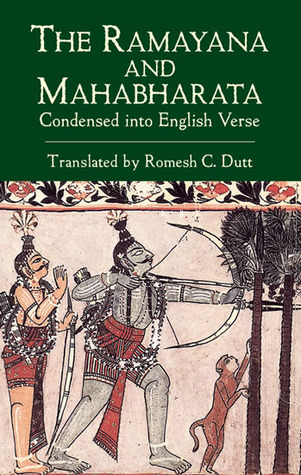
Like ancient Greece, India claims two great the Ramayana, recounting the adventures of a banished prince who wanders for years in the wilderness of southern India, bears a resemblance to the Odyssey ; the Mahabharata, based on the legends surrounding a war in which all the warlike races of Northern India took part, is the country's Iliad . Together, the two represent the epic literature of the ancient Hindus, offering latter-day readers the most realistic image of the civilization and culture of India 3,000 years ago—its political and social life as well as its religion and philosophy. The Ramayana portrays domestic and religious life, with vignettes of tenderness, endurance, and devotion. The Mahabharata depicts the political climate of ancient India, with tales of valor and heroism, ambition, and chivalry. This condensed version of these extremely long tales features selection from cantos that convey the leading incidents of the epic, linking them with short notes. Readers seeking a practical knowledge of these magnificent works within a reasonable compass can do no better than this convenient and poetic translation.
Author

Valmiki is celebrated as the poet harbinger in Sanskrit literature. He is the author of the epic Ramayana, based on the attribution in the text of the epic itself.He is revered as the Adi Kavi, which means First Poet, for he discovered the first śloka i.e. first verse, which set the base and defined the form to Sanskrit poetry. The Yoga Vasistha is attributed to him. A religious movement called Valmikism is based on Valmiki's teachings as presented in the Ramayana and the Yoga Vasistha. At least by the 1st century AD, Valmiki's reputation as the father of Sanskrit classical poetry seems to have been legendary. Ashvagosha writes in the Buddhacarita, "The voice of Valmiki uttered poetry which the great seer Chyavana could not compose." This particular verse has been speculated to indicate a familial relationship between Valmiki and Chyavana, as implied by the previous and subsequent verses.